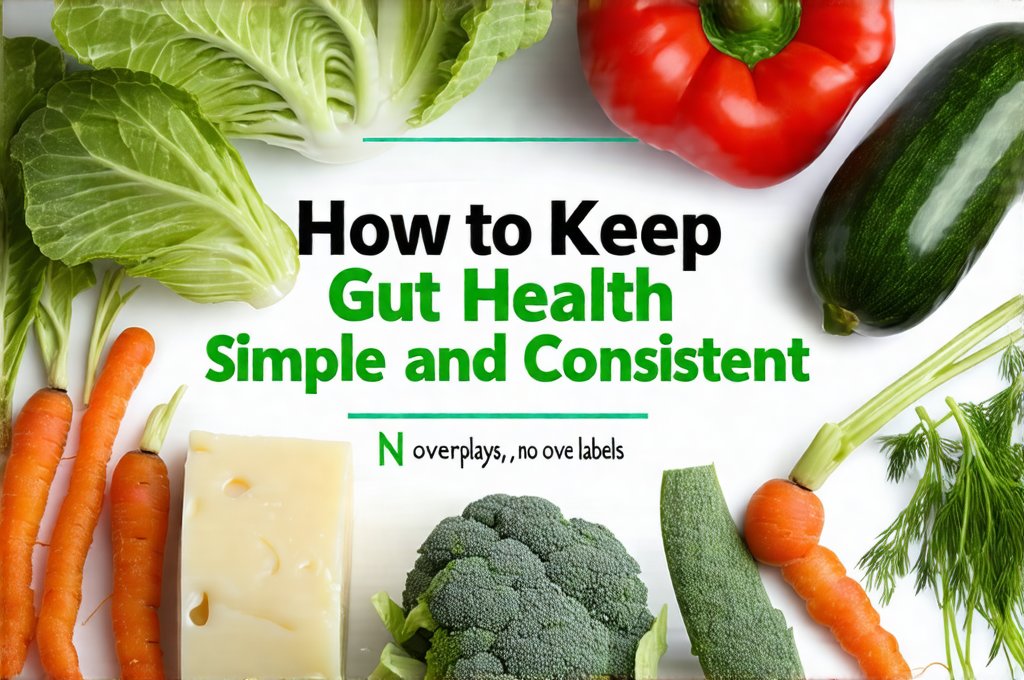The gut – often referred to as our “second brain” – is increasingly recognized for its profound impact on overall health. It’s not just about digestion anymore; a healthy gut influences everything from immunity and mental wellbeing to energy levels and even chronic disease risk. However, the sheer volume of information surrounding gut health can feel overwhelming, leading many people to abandon efforts at improvement before they truly begin. The key isn’t complex protocols or restrictive diets, but rather building sustainable habits that support a thriving microbiome – the diverse community of microorganisms living in our digestive tract. This article will focus on simplifying gut health and establishing consistency, moving beyond trends and toward practical strategies anyone can integrate into their daily life.
Many people mistakenly believe achieving optimal gut health requires drastic changes, like eliminating entire food groups or spending hours researching supplements. In reality, small, incremental adjustments are far more effective in the long run. Consistency trumps intensity; a few mindful choices each day will yield greater results than sporadic bursts of “healthy” behavior. The goal is to create a lifestyle that naturally supports your gut, not one that feels like a constant battle against cravings or restrictions. Let’s explore how we can demystify gut health and build habits that last. If stress impacts your digestion, consider learning maintain gut practices.
Foundational Dietary Habits
The foundation of good gut health begins with what we eat. It’s less about following restrictive diets and more about prioritizing whole, unprocessed foods while minimizing those known to disrupt the microbiome. A diverse diet is crucial – think variety in fruits, vegetables, and fermented foods. This diversity feeds different types of bacteria in your gut, promoting a robust and resilient ecosystem. Focusing on food first before considering supplements is always recommended; food provides not only nutrients but also fiber, which acts as prebiotics for beneficial bacteria.
- Include a rainbow of fruits and vegetables daily to maximize nutrient intake and prebiotic fibers.
- Prioritize whole grains over refined carbohydrates whenever possible. This means choosing brown rice over white rice, or whole wheat bread instead of white bread.
- Limit processed foods, sugary drinks, and excessive amounts of red meat. These can negatively impact gut bacteria and contribute to inflammation.
Hydration is also vital; water helps move things along in the digestive system and supports a healthy mucosal lining. Aim for at least eight glasses of water per day, adjusting based on your activity level and climate. Remember that even seemingly small changes in diet can have a significant cumulative effect on gut health over time. It’s about progress, not perfection. Understanding food labels is also helpful when making dietary choices.
The Power of Fiber
Fiber is often touted as the superstar nutrient for gut health, and rightfully so. It acts as food for our beneficial gut bacteria – these are called prebiotics — helping them to flourish. There are two main types of fiber: soluble and insoluble. Soluble fiber dissolves in water, forming a gel-like substance that slows digestion and helps regulate blood sugar levels. Good sources include oats, beans, apples, and citrus fruits. Insoluble fiber doesn’t dissolve in water and adds bulk to stool, promoting regularity. You’ll find it in whole grains, vegetables, and wheat bran.
Increasing your fiber intake should be a gradual process to avoid digestive discomfort like bloating or gas. Start by adding small amounts of fiber-rich foods to your diet and gradually increasing the quantity over time. A sudden increase can overwhelm your system. Aim for at least 25-30 grams of fiber per day, but remember that individual needs may vary. If you suspect gut infections are impacting your digestive health, seek professional guidance.
Fermented Foods: Natural Probiotics
Fermented foods are a fantastic way to introduce probiotics – live beneficial bacteria – into your gut. These naturally occurring probiotics can help diversify the microbiome and improve digestive function. Common fermented foods include yogurt (with live cultures), kefir, sauerkraut, kimchi, kombucha, and tempeh.
When choosing fermented foods, it’s important to look for unpasteurized versions whenever possible. Pasteurization kills both harmful and beneficial bacteria, diminishing the probiotic benefits. Start with small portions of fermented foods and observe how your body responds. Some people may experience mild digestive changes initially as their gut adjusts to the new influx of bacteria. Don’t force it; find what works best for you and incorporate it into your diet regularly. Learning better tolerance can help with incorporating these foods.
Mindful Eating & Digestion Support
Beyond what we eat, how we eat plays a significant role in gut health. Mindful eating – paying attention to your food without distraction – can improve digestion and reduce stress, both of which impact the microbiome. Chewing thoroughly is paramount; it breaks down food into smaller particles, making it easier for your digestive system to process. It also signals your body to release digestive enzymes, optimizing nutrient absorption.
- Avoid eating on the go or while distracted by screens.
- Sit down and focus solely on your meal.
- Chew each bite thoroughly until it’s almost liquid.
- Eat slowly and savor the flavors.
Stress can negatively impact gut health by disrupting the delicate balance of bacteria. Incorporating stress management techniques such as meditation, yoga, or deep breathing exercises can help mitigate these effects. Additionally, adequate sleep is crucial for digestive function; aim for 7-8 hours of quality sleep each night to support a healthy gut. If you’re traveling, remember travel tips can help maintain your routine. Consider how to plan meals when dining out.
It’s easy to get caught up in the latest health trends, but true gut health isn’t about chasing quick fixes or rigid rules. It’s about building sustainable habits that nourish your microbiome and support overall wellbeing. By focusing on foundational dietary principles, embracing fiber-rich foods, incorporating fermented delights, and practicing mindful eating, you can create a lifestyle that naturally promotes a healthy gut – and reap the countless benefits it offers. Remember to listen to your body, make gradual changes, and prioritize consistency over intensity. A thriving gut is within reach for everyone, one small step at a time. Dine out with confidence knowing these strategies!


















